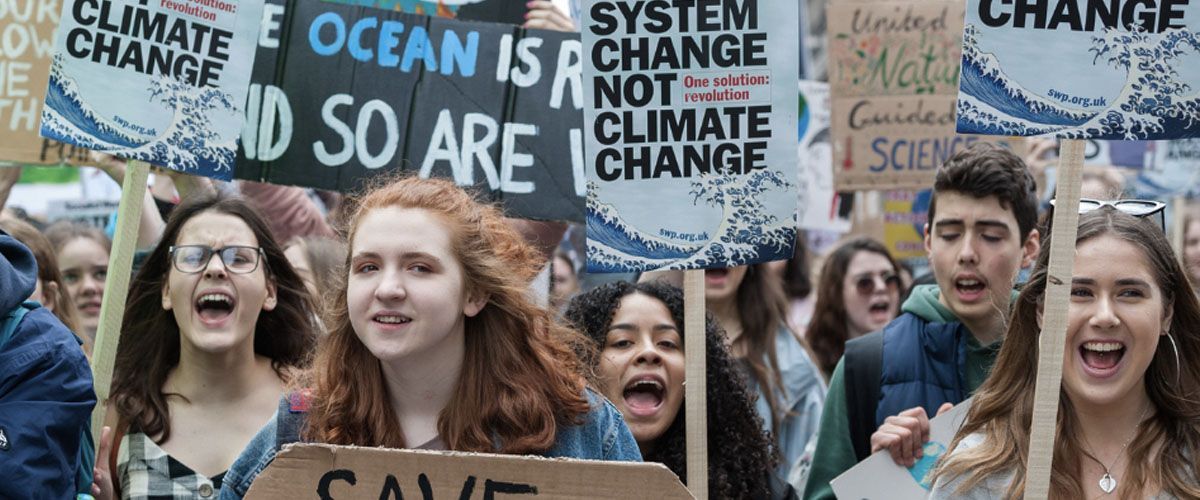Ganadores del concurso (2022)

Marina Tovar i Velasco
Universidad Autónoma de Barcelona
Grado de Relaciones Internacionales
Cambio climático: una amenaza creciente para la seguridad global
From the Youth to the future Youth: bottom-up initiatives and redefinition of multilateral spaces to reorient climate change governance
Climate change’s effects on youth are incredibly harmful, impacting their physical and mental health as well as their sociooeconomic conditions. Despite that youth and their voices have been incorporated into the climate change’s multilateral frameworks, their real impact remains little due to lack of power and authority to implement policy alternatives. Creating youth-only spaces to promote bottom-up inputs into intergovernmental multilateral institutions while redefining the latter by including a diverse set of voices away from the mainstream ones will help redefine the discourses and solutions associated with these.
“We need a multilateralism where the voice of youth is decisive in shaping our future” – António Guterres.
Recent studies have portrayed the adverse effects of climate change as devastating for the youth’s physical and mental health and the socioeconomic conditions in which they live. The youth have been seen as environmental stewards for the future as they have engaged in activism, advanced lawsuits against governments and fossil fuel companies for non-compliance with environmental standards, and encouraged UN institutions to fund youth-led environmental projects. Nevertheless, due to lack of authority, they havelacked to bring about immediate policy changes and alternative policies. For this, bottom-up approaches and a re-definition of multilateral spaces are needed to include youth’s and marginalized youth’s voices into thepolicy discourse to create a more inclusive and diverse culture of security and defense that effectivelyaddresses the threats associated with climate change.
Climate change’s governance: problems and possible solutions
The UN Framework Convention on Climate Change (UNFCCC) and the Post-Paris climate changegovernance have drastically changed since 2015 by including non-state actors (NSAs) and sub- state actors (SSAs). Youth NGOs are included to participate in conferences, mobilizing them to pursue collective action.However, Thew, Middlemiss & Paavola noted that youth struggle to use their participation to expand theirnetworks and pursue their solutions because they are ignored as governments seek to collaborate with businesses and lack the power to make their voices heard. Should the Youth create new spaces for policydiscourse, or should we aim to redefine the already existing spaces?
A two-fold approach would allow for a rapid and drastic change of youth’s voices in the climate changegovernance. On the one side, youth’s inclusivity in existing spaces will facilitate pursuing a vast range ofsolutions while creating transparency amongst the actors involved. Furthermore, re-defining power dynamicswill create trust and delegate authority and accountability to marginalized actors to undertake governancetasks, creating a dispersed and polycentric climate change governance. On the other side, fabricating new spaces made up of youth under the existing spaces that interact and complement the intergovernmentaland supranational multilateral spaces will aid in effectively including youth’s voices in the climate changegovernance. Replicating spaces like UNFCC’s observer constituency of youth NGOs (YOUNGO), theConference of Youth (COY), the #Youth4Climate, and the SDG Youth Climate Roundtable are needed toensure their voices are heard and included in the policy discourse.
Another problem is that the UNFCCC and other climate change multilateral spaces are intergovernmental, and NSAs’ participation is subject to a protocol aimed at not disrupting the liberal nature of thoseorganizations. The youth who participate in UN multilateral institutions represent and reproduce a mainstream discourse that does not bother the liberal democratic codes, notdisrupting the intergovernmental nature of these institutions.
Studies of climate change politics have illustrated the significance of discourse and narratives. The culture of defense is made up of narratives, ideas, preferences, and values. Therefore, introducing new values andpreferences – the youth ones – will aid in reshaping and prioritizing areas previously not considered. Narratives shape policy preferences and behaviors towards climate adaptation; narratives define problems, their causes and potential solutions and can illustrate the actors’ preferences and ideas. To create afundamental change – and effective one translated into new and feasible solutions – we need the inclusion ofmore voices, those that are far from the mainstream discourse. How does climate change affect indigenous youth? Or the youth in marginalized areas from Western countries? To create a culture of defense andmultilateral spaces that engage youth voices, diverse voices must be included so that the mainstream narratives, and thus the mainstream solutions, are redefined. Who better than the youth to participate andshape the solutions for the future youth?
Conclusions
Bottom-up multilateralism initiatives to complement the intergovernmental and supranational institutions will reinforce and complement them to make a more inclusive and diverse climate change governance more participative and resilient. Including youth’s voices in spaces solely dedicated to them and transferring theirresults to intergovernmental institutions through mechanisms of accountability will help ensure their demands are met. Complementing these mechanisms with a more fair and transparent inclusion of youth’svoices into intergovernmental institutions will aid bottom-up approaches to be effective. New values and preferences need to be incorporated to change mainstream discourses and solutions, where the youth havea crucial role as they are the policy-makers and citizens of the future.





